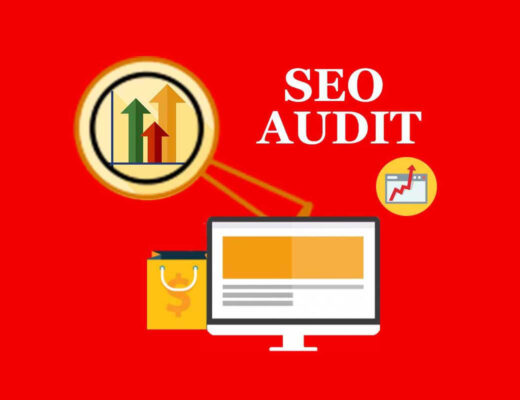If you’re looking to rank high in search engine results, you need to start thinking about SEO Localised Strategy.
SEO localisation is the process of optimising a website for a specific region or country.
This is important because it allows your website to rank higher in search engine results for searches that relate to that region or country.
In this article, we’ll provide you with the information that all you need to know about SEO localised strategy. We’ll also give you a sample SEO localisation strategy for a small business.
Does Your Business Need A Local SEO Strategy?
Yes, your business definitely needs a local SEO strategy!
As the internet has become more and more global, businesses have had to adapt their marketing strategies in order to stay competitive.
One of the most important ways that businesses can localize their content is by implementing an SEO strategy.
When customers type specific keywords into Google or any other search engine, they are looking for information that pertains to those terms.
If your business isn’t showing up first on those searches, you’re losing out on potential customers who might be interested in what you have to offer.
Local SEO Tips – All You Need To Know About Seo Localised Strategy
1. Optimize For Google My Business
Google My Business is a great way for businesses to keep track of their online presence. And, see how they’re performing relative to their competition.
You can also use it to optimize your website for local SEO, as well as generate leads and improve customer loyalty.
To get started, first create an account at Google My Business. From there, you will need to add your business name, address, contact info (including phone numbers), and logo. Next, start optimizing your website for local SEO.
2. Engage On Social Media And Add Posts To Google My Business.
SEO Localised Strategy is all about optimizing a business’s online presence in order to rank higher in search results for relevant keywords.
There are a number of different SEO strategies that businesses can use to improve their ranking. Engaging on social media and adding posts to Google My Business are two of the most effective methods.
Social media engagement comes from posting unique content that resonates with your audience and sharing links to other authoritative pages.
By creating high-quality content, you will attract more followers who will then share your posts with their friends and family.
This increased exposure will help you gain visibility for the LSI keywords you’re targeting, resulting in better rankings.
Adding new listings to Google My Business also helps generate traffic. When potential customers encounter your business listing locally, they’ll be more likely to visit it.
Not only does this increase foot traffic; but it also increases conversion rates because people tend not to trust unfamiliar businesses.
By providing quality information alongside an attractive storefront design, you can guarantee top rankings while driving conversions at high levels!
3. Optimize Online Directories And Citations
Online directories are an essential part of any local SEO campaign.
By optimizing your listing in these directories, you can improve the visibility of your business on the internet and attract new customers.
In addition to online listings, citations can also be a valuable tool for improving rankings.
To get started, identify which online directories are relevant to your industry and business model.
Then tailor your submission package to fit each directory’s specific requirements.
Make sure all of the information you provide is accurate and up-to-date. Incorrect or outdated listings can damage your reputation and lead to lost traffic.
Once you’ve submitted your listing, stay active with regular updates by submitting new content, answering questions, and promoting your listing through social media platforms such as Facebook and Twitter.
Continued optimization will help you maintain top-ranking positions in relevant search engines throughout the year!
4. Perform A Local SEO Audit
Local SEO is the process of improving a website’s search engine ranking in local areas.
By performing an audit and correcting any deficiencies, you can ensure your site ranks higher for relevant searches.
There are several things to consider when undertaking a local SEO audit:
– The geographical area you want your site to rank in
– Your target audience (and their location)
– How well is your site optimized for these keywords
5. Improve Your Internal Linking Structure
Internal linking is one of the most important aspects of Local SEO. It’s the links your website generates from its own pages to other relevant pages on your site.
By improving your internal linking structure, you’ll help improve both search engine visibility and user experience.
Not only will improved visibility lead to increased traffic and leads, but it will also make your website easier to navigate for visitors.
Additionally, better rankings in search engines result in higher click-through rates (CTRs), which can translate into longer customer lives and more sales.
6. Optimize URL, Title Tags, Headers, Meta Description
Local SEO is all about getting your website ranked higher in local search results.
The first step is optimizing your URL, title tags, headers, meta description, and content to make sure you are appearing as the most relevant result for your specific search terms.
7. Add Location Pages To Your Website
Adding location pages to your website is one of the simplest and most effective ways to improve your Local SEO.
When people search for local businesses online, they will likely visit your location pages first.
If you design and populate your locations correctly, you can increase traffic and conversion rates by exposing your business to a wider audience.
8. Create Local Content
Local SEO is all about promoting your business locally.
By creating local content and participating in your local community, you can help people find you faster and improve the visibility of your website and brand.
Local content can take a variety of forms, including blog posts, videos, photos, and even social media posts.
By writing articles that are RELEVANT to your audience, you can attract new readers who may be interested in what you have to offer.
You can also promote special events or offers that are relevant to your area by sharing them on social media.




